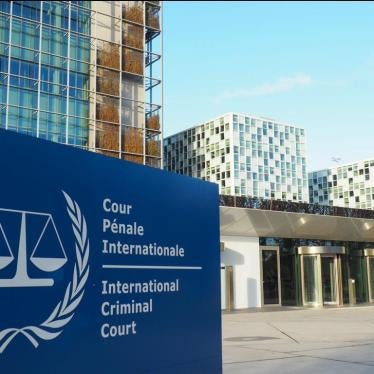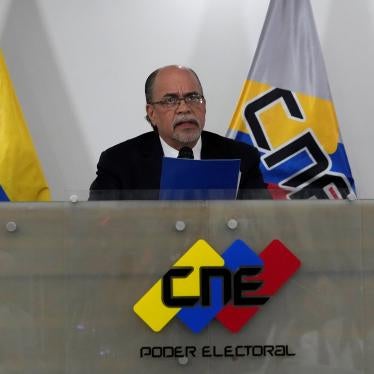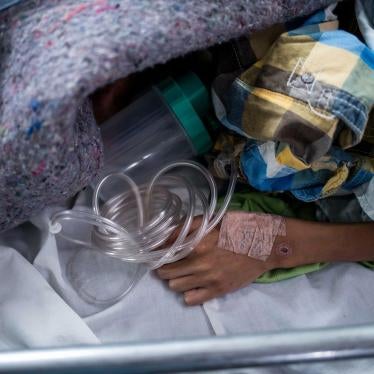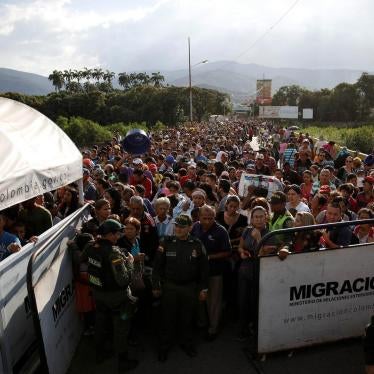(Washington, D.C.) The 2024 presidential elections and 2025 regional, local and legislative elections present a crucial opportunity for the reinstitutionalization of Venezuela’s democracy and rule of law and for the normalization of its relations with the international community. The current crisis reached critical dimensions after the 2018 presidential election lacked legitimacy in the eyes of national and international stakeholders. The upcoming elections provide an opportunity for a significant change in direction. The international community should demand that Venezuela uphold the right to political participation and free and fair elections.
We, the undersigned civil society organizations, are deeply concerned by recent developments that pose a threat to the legitimacy of the upcoming electoral process.
- First, on June 15, six members of the National Electoral Council (CNE) resigned from their positions without giving a clear explanation. The National Assembly, which is dominated by President Maduro’s party, accepted these resignations and later, the resignation of two other members was publicly announced. That same day, the National Assembly took initial steps towards appointing a new CNE by creating a commission whose members are almost entirely of the ruling party. The irregular nature of the resignation of the principal members of the CNE and its immediate acceptance by the National Assembly is alarming. While the Electoral Law in Venezuela allows CNE members to resign, the almost simultaneous departure of most members raises concerns about political pressures, and amounts to the effective dismantling of what should be an autonomous institution. These actions undermine the trust of Venezuelan citizens in their institutions and erode confidence in the electoral process itself. An impartial and fully functioning CNE is fundamental to ensure the legitimacy of the forthcoming elections.
-
For decades, the CNE has been heavily packed by pro-government authorities, but it became slightly more balanced in 2021, with the appointment of two members from the opposition. This allowed them to reach an agreement that enabled the entry of the European Union (EU) election observation mission into the country that year. The CNE is responsible for regulating, directing and overseeing the entire electoral process, as well as ensuring compliance with the constitutional principles attributed to the electoral branch of government.
- Second, we are concerned by the ongoing arbitrary disqualification of opposition electoral candidates by administrative authorities. The recent ratification of a 15-year disqualification against opposition candidate María Corina Machado, as well as previous disqualifications of prominent opposition figures such as Leopoldo López, Henrique Capriles, and Freddy Superlano, severely restrict the rights of Venezuelans to choose their representatives. These disqualifications undermine the principles of democracy and the right to political participation and hinder the inclusivity and fairness of the electoral process.
- Additionally, persistent failures to meet minimum conditions for free and fair elections continue to impede the democratic process in Venezuela. The lack of separation of powers, the disqualification of political candidates, challenges in updating the Electoral Registry which should be permanently opened for all potential voters, limited access to clear and timely information, and the absence of guarantees for freedom of speech, were highlighted by the EU mission to Venezuela in 2021. The EU mission issued 23 recommendations, which were further emphasized during the summit convened by the Colombian government in April 2023. However, to this date, little if any progress has been achieved in implementing these reforms.
The recent developments have already had tangible consequences. Due to concerns regarding the impartiality and timing of the appointment of a new CNE, the National Commission of Primaries (CNP), a body charged with organizing the opposition’s primary elections, has decided to independently organize the opposition’s primary elections without the technical support of the CNE. These primaries, aimed at selecting a single candidate among the political parties of the opposition, are a crucial civic process.
The United Nations recognizes that “genuine elections are those which reveal and give effect to the freely expressed will of the people.” Therefore, elections must adhere to the rule of law and be free from pressure exerted by the ruling party or other actors. The electoral pathway leading to upcoming elections must not be a mere formality but a genuine process that recognizes political participation encompassing more than the right to vote.
Venezuela has an obligation to adopt the necessary measures to ensure that individuals have an effective opportunity to exercise their rights protected by the International Covenant on Civil and Political Rights (ICCPR) and the American Convention on Human Rights (ACHR) including the right to take part in the conduct of public affairs through political participation. This right requires genuine conditions and the guarantee of other rights and fundamental freedoms such as the freedom of expression and the right to information, assembly, and association. The existence of democracy itself, a system rooted in political participation, is critical for the full protection and guarantee of other human rights.
The international community and other stakeholders should accept nothing less and demand that Venezuela uphold minimum electoral standards to ensure the right to political participation and
free and fair elections. The Inter-American Court of Human Rights has ruled that the Venezuelan authorities must not use administrative proceedings to disqualify candidates running for office. In that sense, we welcome the public statements issued by the U.S. State Department and the European Union expressing concern about recent decisions that further undermine the possibility of free and fair elections.
Venezuela must comply with its international obligations and guarantee its people the right to political participation. All Venezuelans, whether residing in the country or abroad, have a right to participate in public affairs and exercise their freedom to make peaceful and independent choices regarding the future of their country.
Signatures
Washington Office on Latin America (WOLA)
Global Center for the Responsibility to Protect (GCR2P)
Robert F. Kennedy Human Rights (RFKHR)
Due Process of Law Foundation (DPLF)
International Commission of Jurists (ICJ)
Human Rights Watch (HRW)








